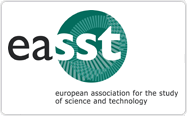Call For Papers: Special Issue on the many modes of Citizen Science
Background and Rationale
This call for papers is concerned with the many modes of citizen science that have emerged in recent times. During the past two decades there has been an increased interest in citizen science (Follett and Strezov 2015; Kullenberg and Kasperowski 2016). Such projects have often been launched with expectations of changing the very landscape of science, especially with reference to citizen science in the natural sciences, where it is performed as a method that engages volunteers for collecting and submitting observations (Silvertown 2009; Cohn 2008; Danielsen, Burgess, and Balmford 2005).
The practice of citizen science goes back at least to the 1960s, in some accounts even to the beginning of the 20th century. The concept itself, however, has its roots in the 1990s (Bonney et al. 2009). In parallel another form of citizen science has been developed by the social sciences, studying the involvement of the public as stakeholders in matters of science policy (Irwin 1995; Wynne 1992). Thus, at least two modes of citizen science can be discerned. One, stemming from the natural sciences, being based on volunteer participation in a specific phase of the scientific process. The other being concerned with engaging the citizens in policy issues aiming to establish legitimacy for science and science policy decisions, an inquiry pursued by social scientists.
In this special issue we want to take analytical accounts one step further and include more ways of performing citizen science, going beyond these two initial modes. We want to shed fresh light on on-going but less noticed projects and lines of inquiry that combine, co-produce, re-invent or transgress these modes, thus inventing new ways of configuring both the citizen and science.
Since the mid-1990s a number of developments have changed the landscape for citizen science initiatives that emerge also outside the established institutions of science. The wide adoption of internet technologies and social media, the emergence of open hardware and software and forms of crowdsourcing and gamification have led to new possibilities for conducting citizen science, even with limited resources. But there have also emerged phenomena such as the platformization of the web (Helmond 2015) and “slacktivism”, which enable “micro-contributions” that might be harnessed for citizen science.
A number of existing modes of citizen science that have not yet been sufficiently explored by previous research include (but not limited to):
- Activist-oriented citizen science (citizen science as resistance) (Kullenberg 2015; Ottinger 2010).
- Civic science (Fortun & Fortun 2005)
- Art and citizen science.
- The materialities and technologies of citizen science (Wylie et al. 2014).
- Invisible citizens in science (Cooper, Shirk, & Zuckerberg 2014).
- Humanities and medicine.
- Citizen science and gamification.
- The social spaces and contexts for citizen science “in the wild”.
Theoretically we encourage discussions that go beyond understanding citizen science either as “scientific method” or “public engagement”. Rather, we wish to explore practices where these boundaries are not clear, but rather utilize political, artistic and scientific strategies to draw attention to matters of concern, for example environmental, health-related or social justice issues, or new fields of inquiry that are not pursued by conventional science.
Aims
The aim of this special issue is to bring forward new empirical cases and theoretical understandings of different modes of citizen science.
Deadline
If you are interested, please submit your paper by 1 October 2016. However, we strongly encourage authors to contact us with an expression of interest as soon as possible or to submit their paper earlier. Manuscripts should be prepared according to the journal guidelines for authors and will be peer reviewed following the journal’s normal review process and criteria. For further information and submissions please contact the guest editors using the email: dick.kasperowski@gu.se and christopher.kullengerg@gu.se.
Guest editors
Dick Kasperowski (University of Gothenburg), Christopher Kullenberg (University of Gothenburg)
Bibliography
Bonney, Rick, Caren B. Cooper, Janis Dickinson, Steve Kelling, Tina Phillips, Kenneth V. Rosenberg, and Jennifer Shirk. 2009. “Citizen Science: A Developing Tool for Expanding Science Knowledge and Scientific Literacy.” BioScience 59 (11): 977–84. doi:10.1525/bio.2009.59.11.9.
Cohn, Jeffrey P. 2008. “Citizen Science: Can Volunteers Do Real Research?” BioScience 58 (3): 192–97.
Cooper, Caren B., Jennifer Shirk, and Benjamin Zuckerberg. 2014. “The Invisible Prevalence of Citizen Science in Global Research: Migratory Birds and Climate Change.” Edited by Robert Guralnick. PLoS ONE 9 (9): e106508. doi:10.1371/journal.pone.0106508.
Danielsen, Finn, Neil D. Burgess, and Andrew Balmford. 2005. “Monitoring Matters: Examining the Potential of Locally-Based Approaches.” Biodiversity & Conservation 14 (11): 2507–42. doi:10.1007/s10531-005- 8375-0.
Follett, Ria, and Vladimir Strezov. 2015. “An Analysis of Citizen Science Based Research: Usage and Publication Patterns.” PLoS ONE 10 (11): e0143687. doi:10.1371/journal.pone.0143687.
Fortun, Kim, & Fortun, Mike. 2005. "Scientific imaginaries and ethical plateaus in contemporary US toxicology." American Anthropologist, 107(1), 43-54.
Helmond, Anne. 2015. “The Platformization of the Web: Making Web Data Platform Ready.” Social Media + Society 1 (2). doi:10.1177/2056305115603080.
Irwin, A. 1995. Citizen Science: A Study of People, Expertise and Sustainable Development. Citizen Science: A Study of People, Expertise and Sustainable Development. Routledge.
Kullenberg, Christopher. 2015. “Citizen Science as Resistance: Crossing the Boundary Between Reference and Representation.” Journal of Resistance Studies 1 (1): 50–76.
Kullenberg, Christopher, and Dick Kasperowski. 2016. “What Is Citizen Science - A Scientometric Meta-Analysis.”
Ottinger, G. 2010. “Buckets of Resistance: Standards and the Effectiveness of Citizen Science.” Science, Technology & Human Values 35 (2): 244–70. doi:10.1177/0162243909337121.
Silvertown, Jonathan. 2009. “A New Dawn for Citizen Science.” Trends in Ecology & Evolution 24 (9): 467–71.
Wylie, Sara Ann, Kirk Jalbert, Shannon Dosemagen, and Matt Ratto. 2014. “Institutions for Civic Technoscience: How Critical Making Is Transforming Environmental Research.” The Information Society 30 (2): 116–26. doi:10.1080/01972243.2014.875783.
Wynne, Brian. 1992. “Misunderstood Misunderstanding: Social Identities and Public Uptake of Science.” Public Understanding of Science 1 (3): 281–304. doi:10.1088/0963-6625/1/3/004.





